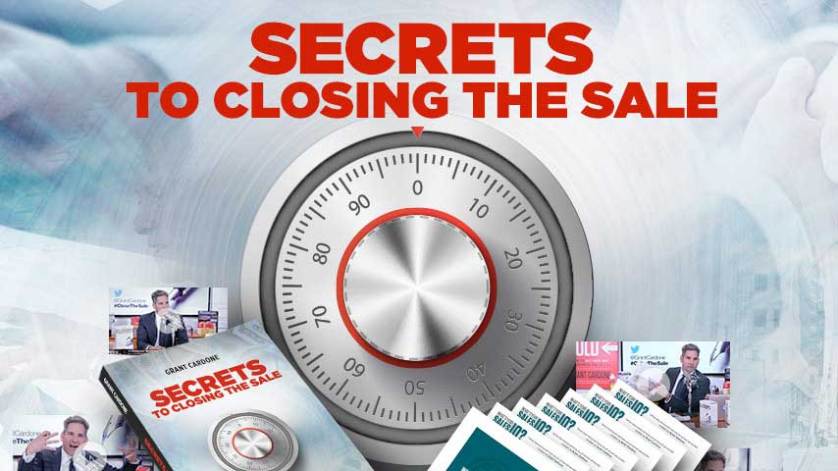Selling: How To Overcome, Handle Objections then Close The Deal
Objections Handled
Sales training is for everybody. When you learn how to and handle objections in any sales cycle, there will come a time in the negotiation where there must be an exchange of value. It will not matter if the value exchanged is money for a product or service or if the value exchange is a consent of time.
So before there can be any exchange of value, there will need to be a determination of your prospect’s needs and wants. Knowing what they need, want and like to have is vital information which will enable you to custom tailor a presentation that is suited to your buyer’s wants and needs.
From this point, you will need to present your product in a way that you show how your product or service can deliver on those needs and wants. Your presentation needs to be delivered in such a way that you build at least two to three times the value of what you’re selling. Even if it’s just convincing your husband to see the latest romantic comedy. That’s still a sales cycle. Think of it in terms of the value exchange.
Along the way, hubby very well may be going to have a thing or two to say about seeing a “chick flick” tonight and you will need to handle and overcome his objections.
See, it doesn’t matter if you’re a traditional salesperson selling property, jewelry, cars, phones or gym memberships or if you’re trying to get a job, promotion, raise, or just get your way; you are selling.
The First Rule of Selling
Before you can handle objections and close a sale, you must first be aware of “The First Rule of Selling.”
The first rule of selling is ALWAYS, ALWAYS, ALWAYS, AGREE. Keep in mind here, it’s not, Always Agree. There’s three “always” before agree, because it is that important.
In Grant Cardone’s best selling book, “Sell Or Be Sold” you will learn how to eliminate conflict by simply going into agreement with someone. Think about it, you’re not going to get your way when there’s conflict. Conflict and disagreement just leads to more conflict and disagreement. This doesn’t mean that the other person is right either.
If you find yourself dealing with an irate person, regardless of whether they’re right or wrong, try this:
“You know, I hear you, I completely understand where you’re coming from and agree that something needs to be done to rectify this situation.”
What just happened? Did you take they’re side? Did you lie? Nope! Nothing was compromised here, all that happened was you just defused a potential argument. Try this on a loved one or your boss next time they’re way off base. Once you’re both on the same page, you can then introduce your side.
The magic of agreement means that in order to get an agreement from somebody, you’re very well likely going to have to give some agreement. Remember, it is in the giving that you receive.
It is important to have an understanding of this principle before moving into handling the objections and closing a deal.
Validate The Objection
When you have an objection, first make sure it actually is an objection. By that, you’ll want to consider that perhaps they’re not actually objecting.
For example, when you’re standing in line for popcorn at the movies, what do you do when you look at the prices?
After you’ve bitched and moaned about the cost of the popcorn and a Coke while watching the three people in front you do the same thing, what do you do? Exactly, buy it anyway and then get some candy while you’re at it. Sweet and salty every time, right?
So what’s the point? “Too much” isn’t always an actual objection, it could just be a complaint…
Next time you hear an objection to something, try agreeing with them and close anyway.
By doing that you’re also testing the validity of the objection. Agree first, close anyway. If it’s just a complaint, you’ll know right away. If it’s an actual objection you’ll know that too.
SIDEBAR: It is also important when entering into the close to leave you’re ego at the door. This is not about you. It’s about making a deal. Win or lose, you’ll still be you. If you hang your ego (identity) on the success of this outcome you’ll find yourself way to focused on you and not what’s most important here, your customer.
At this point, if you haven’t closed, ask a question that will separate or isolate the objection. I like to ask in a “yes or no” format;
“Is that your only reservation?”
Move in the direction of the objection
As in wrestling, martial arts and as in life, move with the weight. Wrestlers know this, practitioners of the martial art Aikido know this all too well.
When you plug this in to handling an objection and considering that the first rule of selling is ALWAYS, ALWAYS, ALWAYS, Agree, you want to make it point to move with the objection, not against the objection. Moving against the objection puts you immediately into disagreement and consequently reduces the chances of a close.
If a person needs to talk with someone before making a decision, why would you want to try to talk them out of that? You’ve got your hands full enough trying to sell them something, there’s no need adding fuel to this particular fire. Instead move with it and explore with them what might or might not happen when they actually talk to that person.
“But this is way over our budget.” They say…
Watch the video up there. See that? That is how you move in the direction of the objection.
From here if the objection still exists, explore it.
“When you say [insert objection] can you elaborate a little more? What exactly do you mean?
Justify and Build Value
Once you’ve got a clear cut picture and understanding of the actual objection or concern, it’s time to go back and justify why your proposal, price or service warrants and deserves what it’s worth. This is where you build value.
Wife to Husband: “OK, I get it. You’re worried that by seeing this movie tonight means that we might not make it back to the movies while The Expendables is still playing in the theatre. Tell you what, if we can see [insert chick flick] tonight, not only will I wind up feeling “romantic” tonight but I promise we’ll go see The Expendables this weekend.”
The implications of the after party build value in the exchange for time and clearly justifies the price.
If you’re talking about a product then it’ll look more like this:
“Sir, I understand you’re worried about being able to afford the higher payment on this new house. But look, you’re already paying 1290 now. The new house is 1850. For an extra 560 a month you’re getting another bathroom, larger back yard, bigger garage, a den and the stove and washer and dryer are already hooked up and ready to go. You said you needed the space and we both know the neighborhood is perfect for you, let’s do this so you can start packing right away!”
How can you plug this in to what you do? Can you already see how this process can help you close more deals and get more agreements?
Finally
So what’s the formula for handing objections and closing the deal?
- Listen
- Acknowledge
- Close anyway
- Isolate the objection (if you have to)
- Build more value and close
Following these steps will put you the position to handle objections, close more deals, avoid arguments and get your way more often than not.
Ask yourself, “How can I plug this formula into my own life? How would this apply to:
- Returning something after you lost your receipt
- Asking your boss for a raise
- Getting your APR on your Visa lowered
- Asking a girl on a date
Give this some quality thought and you will soon see the real world applications and be one step closer getting your way more often than not!


